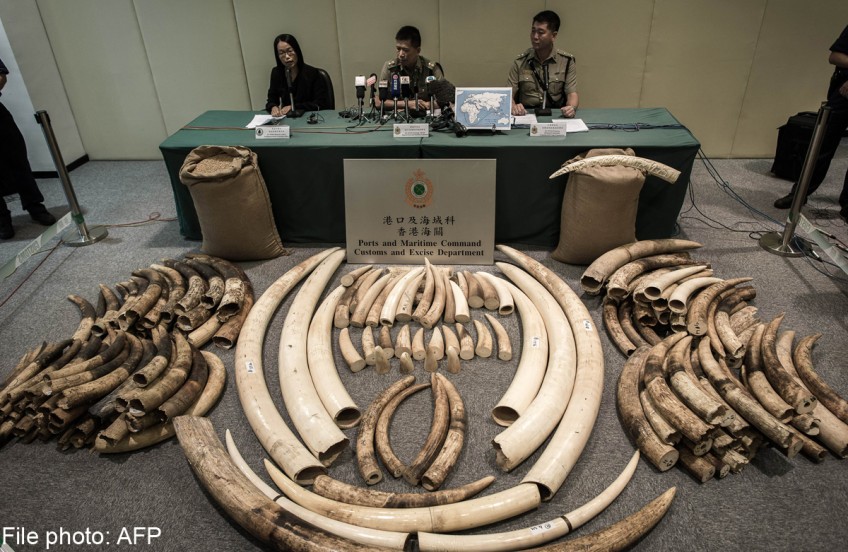Hong Kong to burn one of Asia's major stockpiles of ivory

HONG KONG - Hong Kong plans to destroy 95 per cent of one of Asia's major hoards of confiscated ivory, fulfilling a long-standing demand by conservation groups that battle trafficking in the contraband material.
The World Wildlife Fund ranks China as the world's biggest end-market for poached ivory and Hong Kong, as a free port on the country's southern coast, has long served as a key trans-shipment point for illegal tusks.
Twenty-eight of the 29.6 tonnes of ivory held by Hong Kong authorities is to be incinerated into a grey ash, said Paul Shin, chairman of an advisory panel on endangered species that has authority over the territory's stockpile.
The incineration will begin this year and is expected to take one or two years to complete. The ivory is currently stored in four undisclosed government facilities under tight security, complete with closed-circuit television cameras and guards.
Shin said on Thursday his panel had agreed in principle with the incineration, while urging other nations to take rigorous steps to protect elephants. One tonne of the stockpile would be kept for legitimate uses, such as enforcement and education.
"Many countries, including mainland China, have done this," said Chan Yiu-keung, a senior official of Hong Kong's Agriculture, Fisheries and Conservation Department, referring to the destruction of ivory.
"I think it's a good time for us to follow the international community on this and I am glad the committee supported our proposal."
The move comes just weeks after China crushed 6.2 tonnes of confiscated ivory in its first such public event, after the country's fitful enforcement efforts drove experts to question its commitment to stamping out smuggling.
China's growing appetite for ivory, chiefly for ornamental purposes, but with a small role in traditional medicine, has helped fuel a surge in poaching in Africa.
About 22,000 elephants were illegally killed in 2012, a CITES monitoring programme showed. The total population of African elephants is now estimated at between 420,000 and 650,000.
The United States also last year destroyed a six-tonne stockpile of elephant tusks. The Philippines, Kenya and Gabon have previously destroyed their stockpiles of contraband ivory.
International trade in ivory was banned in 1989 after the population of elephants dropped from the millions in the mid-20th century to about 600,000 by the end of the 1980s.